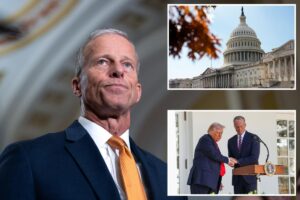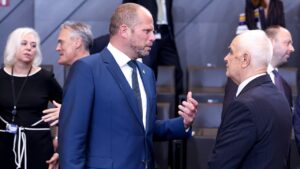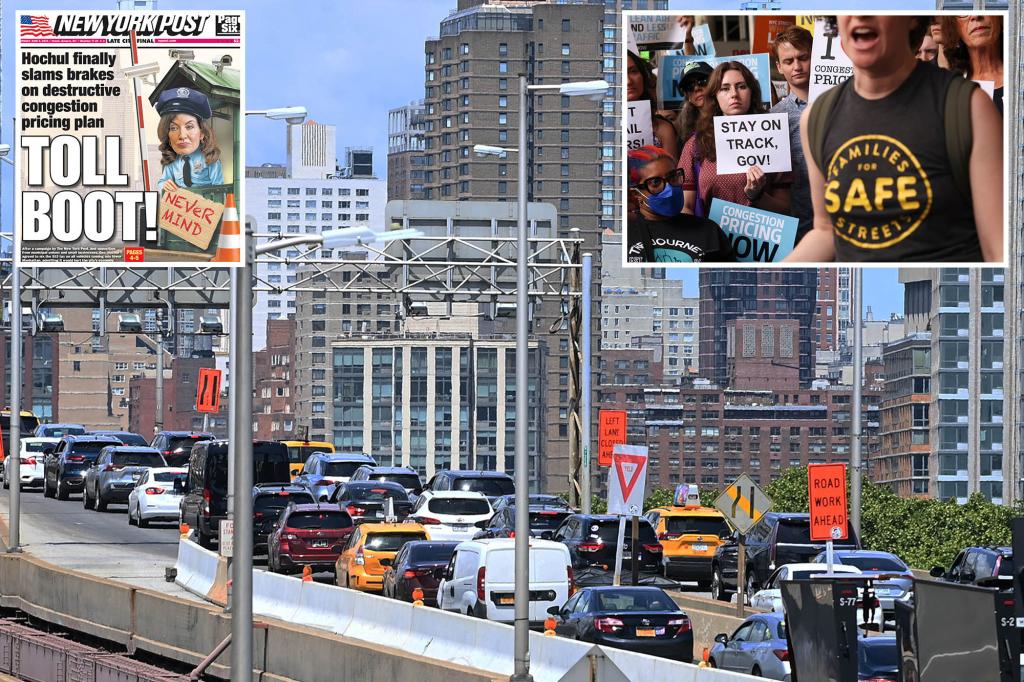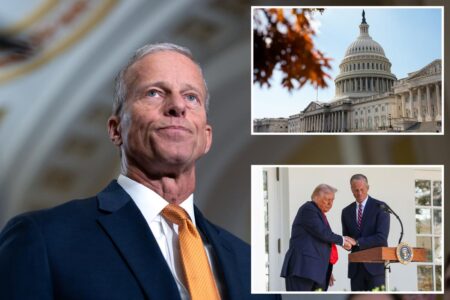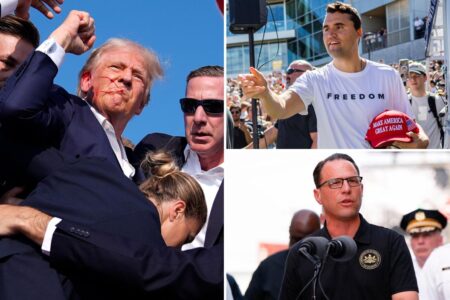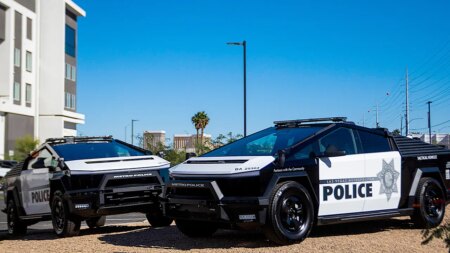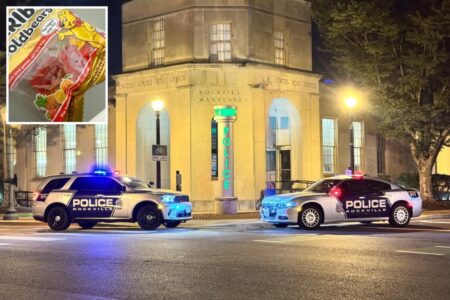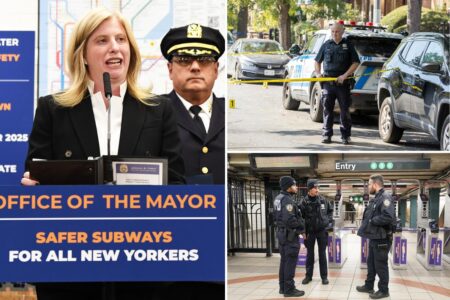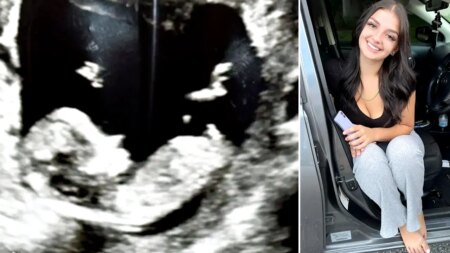Gov. Kathy Hochul is pushing a New York City tax hike to replace the $15 congestion pricing tolls she indefinitely postponed — a last-minute funding Hail Mary that drew fierce opposition Thursday.
Lawmakers and business groups slammed the prospect of a tax increase, especially after Hochul scuttled congestion pricing Wednesday because it would “break the budget” for the working class.
‚ÄúProposing another tax is an insulting joke that will only exacerbate the affordability crisis that¬ÝGov. Hochul pointed to as her reason for killing congestion pricing,‚Äù Assemblyman Matt Slater (R-Putnam) told The Post.
‚ÄúThe combination of corporate income, payroll and other taxes on New York City businesses already has them paying some of¬Ýthe highest effective rates in the nation,‚Äù noted Ken Girardin, director of research at the Empire Center for Public Policy.
Bigwigs and politicos who already feel burned by Hochul’s flip-flop on congestion pricing said it shows she had no real Plan B to make up for the $1 billion a year Manhattan tolls would have raised for the flailing transit agency — and they’re not likely to throw her a lifeline.
“I think it does not have support,” state Sen. Liz Krueger (D-Manhattan) said about a vote on the tax.
“No new taxes,” added Assemblyman Brian Cunningham (D-Brooklyn).
The governor’s shock announcement also created turmoil at the MTA’s highest levels.
MTA Chair and CEO Janno Lieber, along with Hochul’s board appointees, have threatened to resign, a state Senate source told The Post.
Complicating matters is the fact Albany lawmakers are poised to skip town Friday as the legislative session ends — a deadline that could leave major MTA projects in limbo as officials scramble to replace the $15 billion promised by congestion pricing.
Legislative opponents of congestion pricing hailed Hochul’s move as a victory for everyday New Yorkers, but offered no firm solutions for the last-minute funding problem it created.
State Assembly Member David Weprin (D-Queens) said hiking the mobility tax is a possibility, along with other vague “proposals” that he wouldn’t elaborate upon when pressed by The Post.
Here’s everything we know about the NYC congestion pricing plan
The Metropolitan Transportation Authority’s new pricing plan that would charge drivers a minimum of $15 to enter Midtown Manhattan was set to start at the end of June, according to reports.
The MTA argued that the additional toll was aimed at curbing and easing peak-day congestion in Manhattan. The controversial plan would raise about $1 billion per year that would fund major upgrades to subways, commuter railroads and bus systems.
How much would drivers be charged?
- Passenger vehicles: $15
- Motorcycles: $7.50
- Taxis: $1.25 per ride
- Small trucks: $25
- Large trucks: $35
- Uber, Lyft, other ride-shares: $2.50 per ride
Major highways, including the FDR Drive and the West Side Highway, were to be exempt from the toll, but drivers would be charged if they exited onto a street in NYC’s central business district below 60th Street.
The rush-hour rates would be in place from 5 a.m. and 9 p.m. weekdays, according to reports. During non-peak hours, the toll would be about $3.75 for a car. On weekends, the full rate would be charged between 9 a.m. and 9 p.m.
“You’ll find out within a week,” he said. “We’re committed to find a billion dollars.”
The payroll mobility tax is leveled on businesses and self-employed workers in New York City and the surrounding region to help fund the MTA.
Hochul and lawmakers just last year raised the tax on the city’s largest businesses to raise $1.1 billion annually.
The governor, besides a potential mobility tax hike, has floated tapping into state reserves as a replacement, insiders said.
Staten Island Borough President Vito Fossella, a co-plaintiff in one of the lawsuits to block congestion¬Ýpricing, said tax hikes can‚Äôt always be the answer.
“We have $300 billion combined between the state and city budget,” said Fossella, suggesting efficiencies can be found elsewhere to fund transit.
“Raising taxes will just hurt businesses more. I just don’t understand it,” he said.
Democratic Rep. Jerry Nadler, who supports congestion pricing, also blasted a New York City-focused tax increase.
“Our transit system serves twelve New York counties and two other states,” he tweeted. “It’s completely unacceptable for the burden of yet another payroll tax increase to be raised on NYC small businesses to fund regional transit projects.”
The legislators weren’t alone in their opposition.
Prominent business groups, such as The Real Estate Board of New York, that stuck their necks out in support of congestion pricing have criticized Hochul’s reversal and funding replacement proposals.
Kathryn Wylde, president and CEO of the prominent Partnership for NYC, told NY1 Thursday that she personally expressed her “frustration and disappointment” to Hochul.
Her group later that day issued a statement opposing any increase in the payroll mobility tax to replace the $1 billion.¬Ý
Business and real estate taxes already account for 44% of MTA revenues, followed by rider fares at 27% and 13% for vehicle tolls – an unfair share that congestion pricing would have corrected, the statement contended.
“Congestion pricing spread the MTA funding burden equitably across all the constituencies that benefit from the mass transit system that supports the tri-state regional economy,” the statement reads.
“The PMT burden is entirely on New York City, which is already the most highly taxed city in the country.”
Read the full article here

